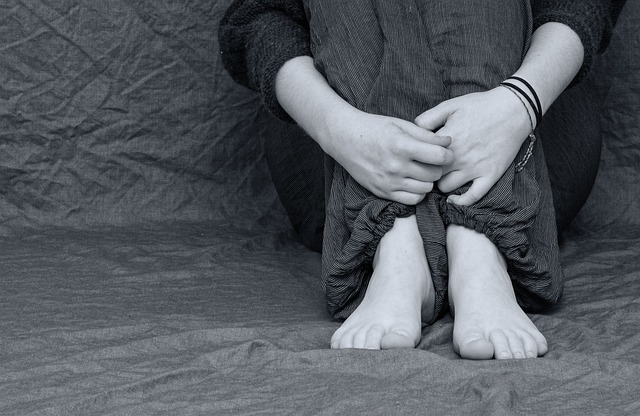Understanding Bipolar Disorder: A Comprehensive Guide to Causes, Symptoms, and Treatment
Bipolar disorder is a complex mental health condition that affects millions of people worldwide.It is characterized by extreme shifts in mood, energy levels, and behavior. There are several types of bipolar disorder, including Bipolar I, Bipolar II, and Cyclothymic Disorder. Bipolar I is characterized by manic episodes that can last for several days or weeks, while Bipolar II involves hypomanic episodes and depressive episodes. Cyclothymic Disorder is a milder form of bipolar disorder with less severe mood swings.
The impact of bipolar disorder on daily functioning cannot be understated. The extreme highs and lows experienced by individuals with bipolar disorder can disrupt relationships, work, and overall quality of life.It is estimated that approximately 7 million adults in the United States are affected by bipolar disorder. However, with proper diagnosis, treatment, and support, individuals with bipolar disorder can lead fulfilling lives.
Causes and Risk Factors of Bipolar Disorder
The exact causes of bipolar disorder are not yet fully understood, but research suggests that it is likely a combination of genetic, neurochemical, and environmental factors.Studies have shown that there is a higher prevalence of bipolar disorder among individuals who have a family history of the condition, indicating a genetic component. Neurochemical imbalances, particularly involving neurotransmitters like serotonin, dopamine, and norepinephrine, have also been implicated in the development of bipolar disorder. Additionally, certain environmental factors, such as stressful life events or substance abuse, can trigger or exacerbate symptoms in individuals who are genetically predisposed to the condition.
For example, a study conducted by the National Institute of Mental Health found that individuals with a family history of bipolar disorder were more likely to develop the condition themselves, suggesting a genetic link. Another study published in the Journal of Affective Disorders found that stressful life events, such as the loss of a loved one or financial difficulties, were associated with an increased risk of bipolar disorder.

Symptoms of Bipolar Disorder
Bipolar disorder is characterized by two main types of episodes: manic episodes and depressive episodes. During a manic episode, individuals may experience a heightened sense of euphoria, extreme energy levels, racing thoughts, and impulsive behavior. They may engage in risky activities, such as excessive spending or substance abuse, and have a decreased need for sleep. On the other hand, depressive episodes are characterized by feelings of sadness, hopelessness, loss of interest in activities, fatigue, and changes in appetite and sleep patterns.
In addition to these main symptoms, individuals with bipolar disorder may also experience difficulty concentrating, irritability, and feelings of worthlessness or guilt. It is important to note that the severity and duration of these episodes can vary greatly from person to person.
For instance, during a manic episode, an individual may engage in impulsive and reckless behavior, such as excessive gambling or reckless driving. This behavior can have serious consequences, such as financial loss or legal issues. During a depressive episode, individuals may struggle with feelings of hopelessness and have difficulty performing everyday tasks, such as getting out of bed or going to work.
Diagnosis and Misdiagnosis of Bipolar Disorder
Diagnosing bipolar disorder can be challenging, as the symptoms can overlap with other mental health conditions, such as depression or anxiety disorders. Additionally, individuals with bipolar disorder may not recognize or acknowledge their symptoms, making it difficult for them to seek help. The diagnostic process typically involves a thorough psychiatric evaluation, which includes a detailed assessment of symptoms, medical history, and family history.

In order to meet the diagnostic criteria for bipolar disorder, an individual must have experienced at least one manic or hypomanic episode, along with depressive episodes. However, the frequency and duration of these episodes can vary. It is crucial for healthcare professionals to accurately diagnose bipolar disorder, as misdiagnosis can lead to ineffective treatment and worsening of symptoms.
To further complicate matters, individuals with bipolar disorder may also experience comorbid conditions, such as anxiety disorders or substance use disorders. It is estimated that over 50% of individuals with bipolar I and II also experience anxiety and engage in substance use. Therefore, a comprehensive evaluation is necessary to identify and address all co-occurring conditions.
Treatment Options for Bipolar Disorder
Effective treatment for bipolar disorder often involves a combination of medication, psychotherapy, and lifestyle changes. Medications such as mood stabilizers, anticonvulsants, antipsychotics, and antidepressants are commonly prescribed to manage symptoms and stabilize mood. These medications work by regulating the levels of neurotransmitters in the brain and reducing the severity of mood swings.
Psychotherapy, such as cognitive-behavioral therapy (CBT), family-focused therapy (FFT), and interpersonal and social rhythm therapy (IPSRT), can be highly beneficial for individuals with bipolar disorder. These therapies help individuals develop coping skills, manage stress, and maintain healthy relationships. They can also provide support and education for family members, who play a crucial role in the recovery process.
In addition to medication and therapy, lifestyle changes can also play a significant role in managing bipolar disorder. Maintaining a consistent sleep schedule, following a healthy diet, and engaging in regular exercise can help stabilize mood and improve overall well-being. It is important for individuals with bipolar disorder to establish a routine and practice self-care to minimize the risk of triggering manic or depressive episodes.
For example, a study published in the Journal of Clinical Psychiatry found that individuals who engaged in regular exercise experienced a reduction in depressive symptoms and improved overall mood. Another study published in the journal Bipolar Disorders found that individuals who followed a Mediterranean-style diet, rich in fruits, vegetables, whole grains, and lean proteins, had a lower risk of developing bipolar disorder.

Living with Bipolar Disorder
Living with bipolar disorder can be challenging, but with the right support and self-management strategies, individuals can lead fulfilling lives. It is important for individuals with bipolar disorder to develop a strong support network, which may include family, friends, and support groups. These individuals can provide emotional support, understanding, and encouragement throughout the recovery process.
Self-management strategies are also crucial for individuals with bipolar disorder. Keeping a mood journal, for example, can help individuals identify triggers and patterns in their mood swings. This information can be invaluable for healthcare professionals in developing an effective treatment plan. It is also important for individuals to practice stress management techniques, such as meditation or deep breathing exercises, to reduce the risk of triggering episodes.
It is worth noting that bipolar disorder is not solely a negative experience. Many individuals with bipolar disorder exhibit positive attributes, such as creativity, resilience, and entrepreneurial traits. For example, numerous artists, musicians, and writers have attributed their success to their ability to channel their mood swings into their creative work. While living with bipolar disorder can be challenging, it is important to recognize and embrace these positive aspects.
Conclusion
In conclusion, bipolar disorder is a complex mental health condition that affects millions of people worldwide. It is characterized by extreme shifts in mood, energy levels, and behavior. While the exact causes of bipolar disorder are not yet fully understood, research suggests that it is likely a combination of genetic, neurochemical, and environmental factors. Diagnosing bipolar disorder can be challenging, and misdiagnosis is not uncommon. However, with proper diagnosis, treatment, and support, individuals with bipolar disorder can lead fulfilling lives. It is important for individuals, families, and society as a whole to provide appropriate support and reduce the stigma surrounding mental health. Encouraging individuals with bipolar disorder to seek appropriate treatment, build a support network, and educate loved ones about the condition is essential. With proper treatment, support, and self-management strategies, individuals with bipolar disorder can lead fulfilling lives.





